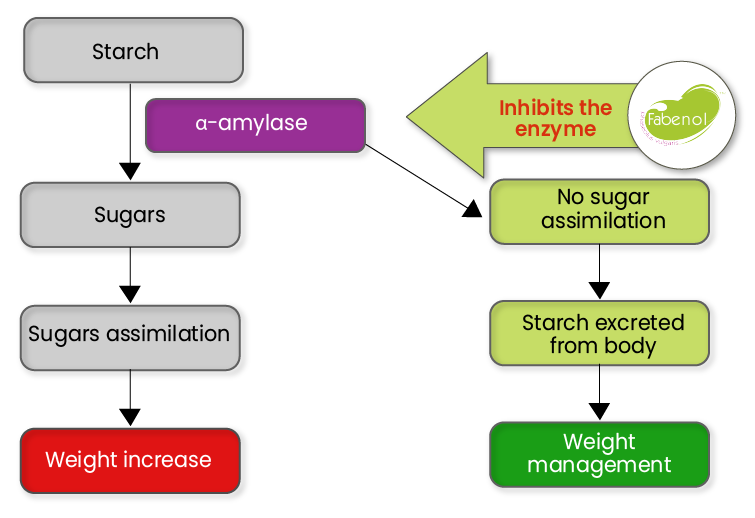White kidney bean powder, often marketed under the name Fabenol, is derived from the seeds of the white kidney bean (Phaseolus vulgaris). This natural extract has garnered attention for its potential health benefits, particularly in the realm of weight management and blood sugar regulation.
One of the key active components in white kidney bean powder is phaseolamin, a compound classified as an alpha-amylase inhibitor. Alpha-amylase is an enzyme responsible for breaking down complex carbohydrates into simpler sugars during the digestion process. By inhibiting alpha-amylase, white kidney bean powder may reduce the absorption of carbohydrates in the digestive tract. This property has led to its exploration as a potential aid in weight management, as limiting the absorption of carbohydrates may contribute to reduced calorie intake.
Studies suggest that the consumption of white kidney bean extract, such as Fabenol, may have a positive impact on postprandial blood glucose levels. By slowing down the digestion and absorption of carbohydrates, it could potentially help in managing blood sugar levels, making it of interest to individuals with diabetes or those at risk of developing insulin resistance.
Furthermore, white kidney bean powder is rich in dietary fiber, which adds to its potential benefits for digestive health. Fiber plays a crucial role in promoting satiety, regulating bowel movements, and supporting overall gastrointestinal function.
As with any supplement, it’s crucial to approach the use of white kidney bean powder with caution. While research suggests promising effects on carbohydrate metabolism and weight management, individual responses may vary. Additionally, consulting with healthcare professionals is advisable, especially for individuals with existing medical conditions or those taking medications.
In conclusion, white kidney bean powder, commonly known as Fabenol, presents an intriguing natural supplement with potential benefits for weight management and blood sugar regulation. However, individuals considering its incorporation into their routine should do so under the guidance of healthcare professionals to ensure safety and appropriateness based on individual health needs.
Fabenol®

